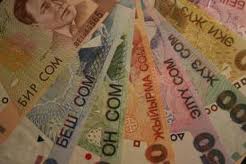Analytics
The best Experts' Views, Marks and Forecasts on Economics >>
Rules of Entry and Participation. Become a Member of Professional Society of Economic Journalists! >>

BISHKEK – Though the Kyrgyz economy is improving, the country still needs significant external investment, authorities and experts say.
Deputy Finance Minister Mirlan Baigonchokov said the Kyrgyz economy, relying on internal investments, intends to attract investments totalling US $396m (KGS 17.9 billion) by the end of this year, including $67m (KGS 3 billion) in grants and $329m (KGS 14.8 billion) in borrowing.
“The aid provided by the donor community is being directed to various sectors of the economy: the social, transportation, infrastructure and the financial sector. We plan to carry out 55 investment projects within the framework of the state investments program in 2012,” Baigonchokov said.
However, according to deputy minister, Kyrgyzstan’s external debt totals US $2.8 billion (KGS 130 billion).
“The government fulfils its obligations in servicing the state external debt on time and in full: repayment of the capital and of the interest due,” he said.
The size of the external debt considerably exceeds the sum of the expected investments. Nevertheless, thanks to external aid, the Kyrgyz economy is staying afloat, and it is moving toward the positive side, according to economist Dzhumakadyr Akeneyev, president of the Kyrgyz Association of Oil Traders.
“Considerable support is being given to the country’s economy by the citizens of Kyrgyzstan themselves, who have gone to earn money in Russia and Kazakhstan,” Economic Development Minister Uchkun Tashbayev said, recalling that labour migrants sent US $1.2 billion (KGS 54 billion) last year to Kyrgyzstan by bank transfers.
Economist Turar Koichuyev, former director of the Kyrgyz Government Centre for Economic Strategy, said the influx of assets from labour migrants has a considerable influence on the social support of the population.
“The labour migrants send assets to Kyrgyzstan, on which whole regions live. In spite of the fact that considerable assets are being sent, the flow of cash from migrants does not play an important part in the plan for the country’s economic development,” Koichuyev said.
“The government of Kyrgyzstan must pay attention to those Kyrgyz people who have become major entrepreneurs abroad, and create conditions to attract investments from them.”
Tashbayev said bringing in entrepreneurs from abroad is now under consideration.
Battle against corruption
Bakyt Baketayev, former head of administration of the National Committee for Prevention of Corruption, said the country’s economic results would improve if corruption were overcome.
“It is no good attracting investments while the country has no clear strategy to combat corruption,” he said. The president and parliamentarians have repeatedly announced anti-corruption measures and parliament is working on ways to fight corruption, he said.
As Kyrgyzstan’s stability improves, the volume of investments will increase, according to financial analyst Asif Ibraimov, who said that National Statistics Committee data showed a reduction in investment activity in 2010, i.e. the outflow of capital, of US $96,100,000, (KGS 4.3 billion), or 41.9% of incoming direct foreign investments.
Many outsiders await election
“Many world and regional investors ... are interested in Kyrgyzstan, but they are all waiting for the result of the presidential election,” Ibraimov said. “If everything passes off quietly, this election will be the final assurance that the country will remain stable. Then investments will pour in.”
Entrepreneur Aidan Karibzhanov considers Kyrgyzstan of particular interest for Kazakh investors, but they too are waiting for the right moment. Karibzhanov said the work of the justice system is important to attracting investment.
“Investors want the actions of the courts in Kyrgyzstan to be transparent and independent,” he said.
Reform of the judicial institutions is taking place in Kyrgyzstan, and the Defence Council has commissioned a number of state bodies to ensure the election takes place in a calm atmosphere.
Ibraimov said the most attractive areas for investors are the manufacturing industry, property transactions, leasing, consumer services, the retail trade, motor vehicle repairs, consumer goods, articles for personal use, transportation and communications.
“The Kyrgyz economy is slowly but surely moving in the right direction, and many analysts predict that after the election, investments will flow into the country,” Ibraimov said. “The main thing is that business mechanisms should really operate cleanly, without any corruption or protection rackets, as the government promises it will.”